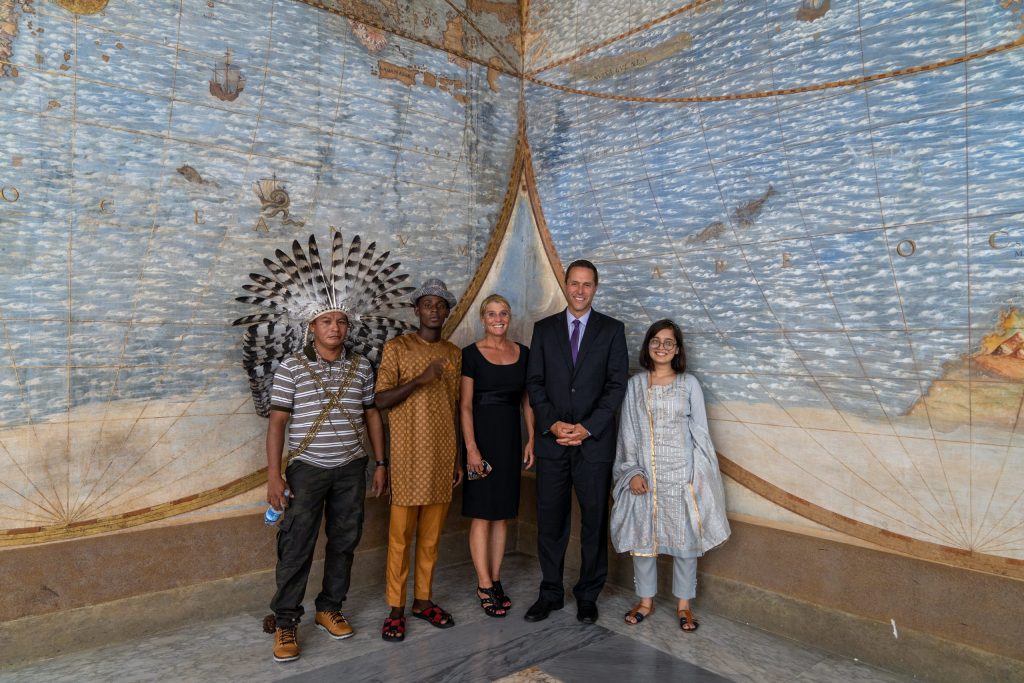December 20, 2022 // National
‘The Letter’ Shows How Theology and Science Stand Together in Pope Francis’ Encyclical, Laudato Si
The 13th century Saint Francis of Assisi — the papal namesake of our 21st century Pope Francis — was a man who cared deeply for the earth. In 2015, the Holy Father continued the Franciscan ecological legacy through his encyclical, Laudato Si. It is not only the first papal letter to directly address the dangers of climate change, but it is also the first to call upon different religious traditions to “care for our common home.”
“The cries of the earth and the cries of the poor cannot go on,” Pope Francis says.
To pen the encyclical, he met not only with theologians to discuss the ethics and responsibilities of Catholics, but also with scientists and researchers to learn how best to tackle the practical elements of climate care.
PBS’ 2022 documentary, The Letter, brings Pope Francis’ encyclical to life by following six people’s journeys as they travel to the Vatican to meet with the Pope. Each was affected in their own ways by the same problem: climate change.

Chief Dadá Borarí from the Maró Indigenous Lands of the Brazilian Amazon; Arouna Kandé, a climate change refugee from Senegal; U.S. scientists Robin Martin and Greg Asner; and teenage climate activist Ridhima Pandey of India participated in the making of the documentary “The Letter.” They are seen inside the Apostolic Palace at the Vatican Aug. 26, 2021. The film tells the story of a journey to Rome of frontline leaders to discuss with Pope Francis his encyclical “Laudato Si’, on Care for Our Common Home.” (CNS photo/courtesy Off the Fence)
Many critics of this Laudato Si argue that the Pope should keep politics out of the pulpit. But through true stories and chilling videography, PBS shows that climate change is not merely a political issue to be debated by pundits — it is a human issue that affects our communities and environment.
Speaking about the diverse group that Pope Francis assembled to take on hyper-consumption and wasteful practices, the Holy Father stated, “It’s like a choir. We have to sing together.”
While the documentary contains many beautiful moments throughout, it begins with a grim depiction of current ecological affairs. An African town feuds with the ocean, whose ever-mounting waves leave more and more homeless, year after year. The first story is told by a refugee who has been called by the Vatican, who engulfs us in his story of hope and despair.
As the documentary goes on, we also see the climate crisis in India, Brazil, and Australia, and we hear from residents of each country. Each was hand-selected by the Vatican to assist in giving a voice to the voiceless, who are so often the first victims of climate disasters.
The documentary is extremely well-made on all accounts, from the storytelling to the cinematography. It is a moving film with heart-wrenching stories. The global nature of climate change and the significance of one’s actions on others cannot be missed in the stories shared of people who have seen the destruction firsthand, but who have the courage and strength to stand up against it.
The cinematography not only showcases the expanse and intensity of the destruction but also reminds you of the incomprehensible and precious beauty of the earth.
The stunning videos of other continents and even under the sea expand the world beyond our small corner and remind us that its beauty is beyond our comprehension, yet they also make the world seem smaller and more real. Through that juxtaposition, The Letter shows the great need to protect the earth, not simply because it is something to be admired but also because it is ours to care for.
It was clear through the images and stories that change needs to happen — and soon. The Letter works to inspire people to care for the earth in a way that best utilizes their unique talents and passions and gives new insight into why Pope Francis wrote this important letter to each of us.
The best news. Delivered to your inbox.
Subscribe to our mailing list today.






